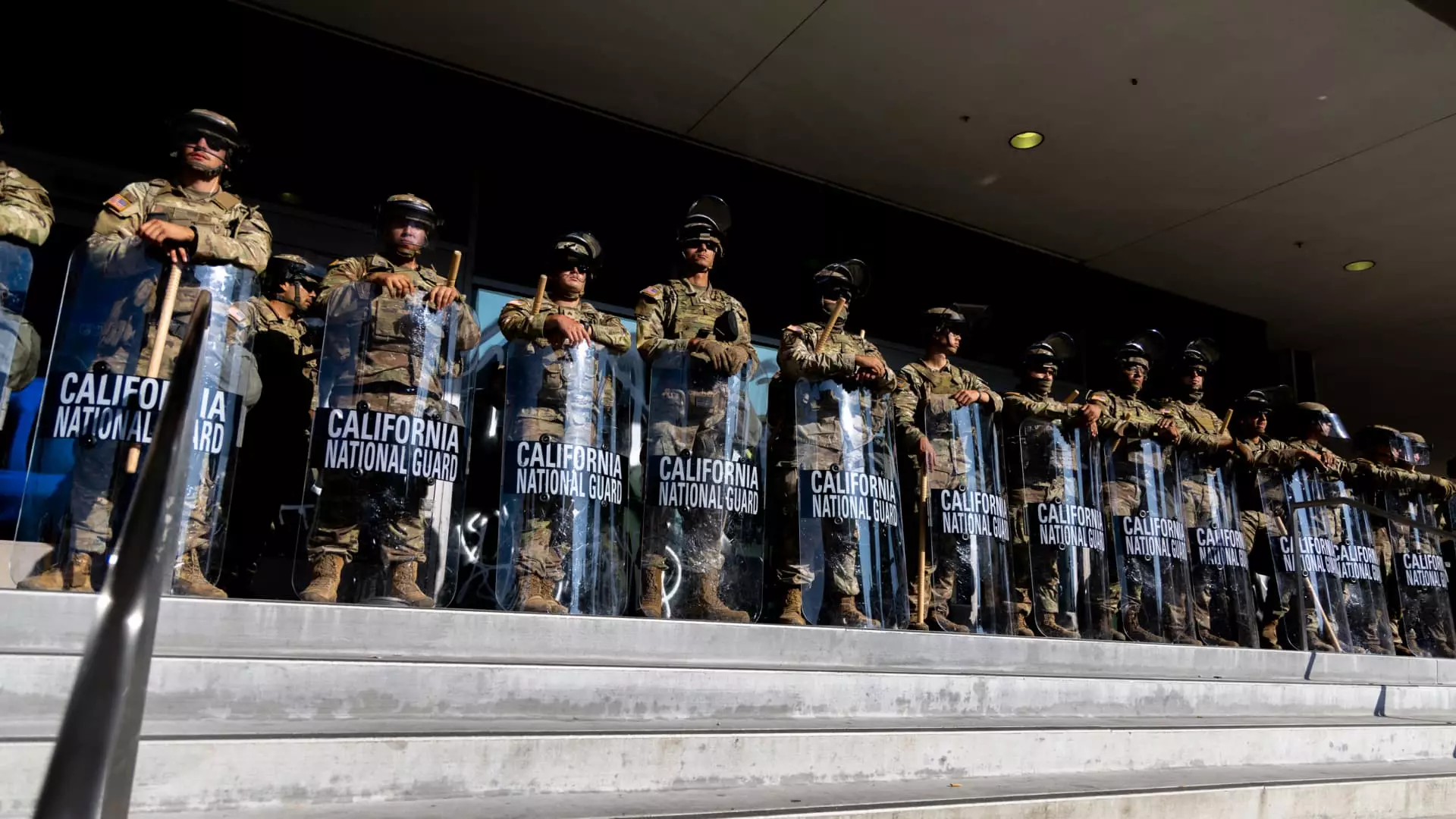In a bold move that can only be described as unapologetically provocative, the 9th U.S. Circuit Court of Appeals affirmed President Donald Trump’s authority to manage the National Guard troops stationed in Los Angeles, igniting concerns about executive overreach. This ruling marks a perilous moment in American democracy, where the president’s ability to deploy federal troops can circumvent state objections. The timeline of events that led to this decision reveals deeper fabrications of authority that undermine the foundational balance intended by our constitutional framework.
The deployment itself is extraordinary, as it represents the first time since 1965 a president has commanded state National Guard troops without receiving explicit permission from a state governor. California’s very own Governor Gavin Newsom challenged this unilateral decision by the president, suggesting that such moves not only inflame societal tensions but also encroach upon the sovereignty of local governance. The court’s decision, therefore, poses a significant rhetorical dilemma: at what point does the need for security justify overriding local authority? This dilemma stands at the crossroads of law, politics, and human rights—an intersection steeped in uncertainty and potential for abuse.
Unpacking Justifications Amidst Unrest
The justification laid forth by Trump’s administration—that the presence of the National Guard was crucial for the restoration of order in the face of escalating protests—raises eyebrows. The appellate court leaned heavily into claims of “surging violence” against federal officers and property. While acknowledging the disturbances that occurred, it is vital to scrutinize whether deploying the National Guard was indeed the necessary recourse to quell these protests. The notion that federal troops are warranted to stamp out discontent paints a chilling picture of a government inclined to sidestep civil liberties and community dissent in favor of heavy-handed tactics.
Moreover, the court portrayed the protests as an existential threat to federal officers. However, the portrayal of these events lacks nuance. Labeling protests whose demands arise from deeply rooted discontent with governance as a form of “rebellion” not only exaggerates the situation but also undermines the fundamental right to express dissent. The conflation of civil unrest with violent rebellion is a dangerous path that sets a precedent for justifying excessive state intervention whenever chaos is perceived, thereby eroding the essence of a citizen’s right to assemble and protest.
The Legal and Moral Ramifications
There is a chilling effect tied to the ruling, for it demonstrates that presidents may wield powerful tools to assert control domestically. Despite Trump’s legal arguments suggesting he merely acted within his limits, the implications of this ruling may reach far beyond this case. If the federal government can deploy military personnel at its sole discretion, bypassing state authorities, what remains of federalism? The judiciary, which traditionally serves as a guardian against executive overreach, now appears hesitant to check presidential authority properly.
It is likewise worth noting that two of the three judges on the panel were appointed during Trump’s presidency, raising concerns about impartiality within the judicial system itself. When courts exhibit deference to the executive, it not only poses a risk to fairness in legal proceedings but also threatens to disenfranchise much of the public that relies on checks and balances to safeguard their rights.
Governors like Newsom stepping up to protect their states’ rights is commendable, but it opens a complex dialogue about the effectiveness of local governance against a backdrop of federal power. Newsom’s view that Trump’s decisions inflame tensions speaks volumes about the coalescence of law enforcement with political motivations.
In essence, the conflict centers on whether we can continue to allow dissent while leaning towards a militarized response. An escalation of this nature seriously challenges liberal doctrines, and the ramifications of these decisions will echo through future generations if left unchecked. The alarm bells are ringing not just for those observing the political theater, but for every individual who believes in the tenets of democracy and civil liberties. It is imperative that we remain vigilant in questioning and resisting such acts of expansive executive power.

